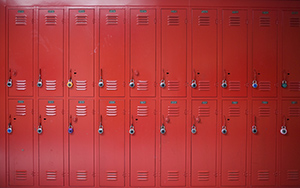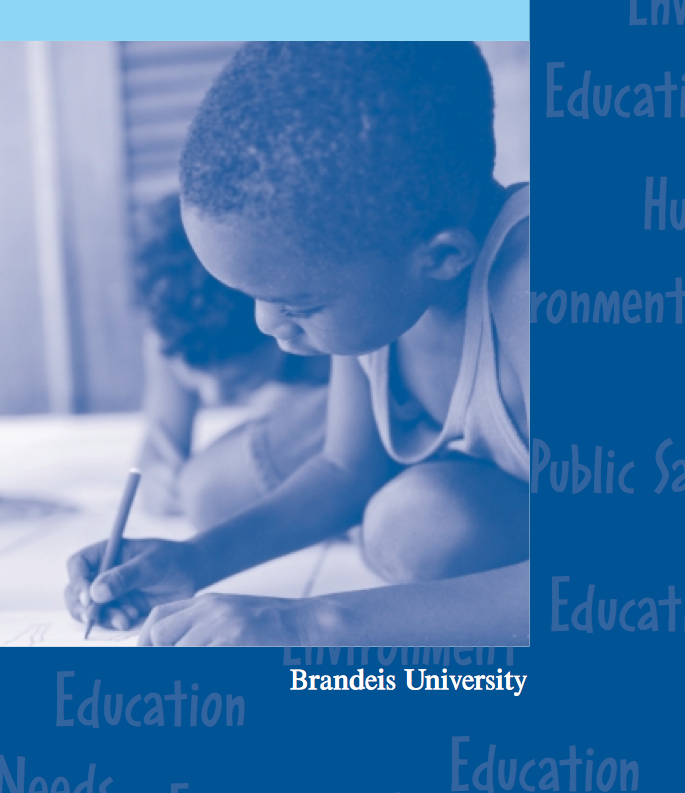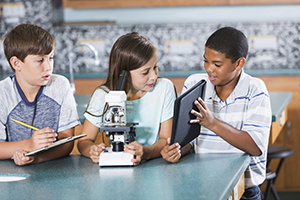Global Best Practices

This tool is a practical, action-oriented self-assessment for secondary schools. It was developed for the New England Secondary School Consortium. The tool grew out of a recognition that national borders no longer define the knowledge, skills, and habits of mind that students need for success, and that New England’s high schools may need assistance reviewing… Read More ›
The Glossary of Education Reform

The Glossary of Education Reform (edglossary.org) is a public, online resource that defines and describes major terms, concepts, and strategies in public-education reform. The Glossary of Education Reform was created to help journalists, parents, and community members-anyone with an interest or investment in our public schools-understand some of the major reform concepts being discussed by… Read More ›
National Evaluation of Learn and Serve America, Summary Report

In 1993, the National and Community Service Trust Act (P.L. 103-82) established the Learn and Serve America School and Community-Based Programs to support school and community-based efforts to involve school-aged youth in community service. Between 1994 and 1997, Brandeis University’s Center for Human Resources and Abt Associates Inc. conducted an evaluation of the national Learn… Read More ›
The Power of Combining Youth Development Principles, Culture and Arts: Findings of a Study of the Culture & Arts Youth Development Initiative

This study from the Skillman Foundation features the results of an evaluation of its Culture and Arts Youth Development Initiative, which integrates youth development with arts and culture by providing youth in underdeveloped neighborhoods opportunities to participate in long-term exposure to the arts. The findings are based on the evaluation of the first four years… Read More ›
Teacher Design for Education

Using hands-on activities and project-based challenges, Teacher Design for Education (TD4Ed) harnesses the creativity and problem-solving skills educators use everyday to solve some of the toughest problems within education. Through this curriculum, educators will tap into skills they already have and build new competencies to identify challenges, generate new ideas, and implement solutions. Source Organization:… Read More ›
If I Could Lead A School: A Student-Driven Participatory Design Studio to Re-imagine Education

This Student Experience Lab explores how good design can improve the quality of learning experiences for students by not only listening to the voices of the students but also engaging them in the conceptual development of new systems. 40 young people in Rhode Island tackle the challenge to design a new student experience for a 21st… Read More ›
A Step-by-Step Guide to Personalized Learning

This report offers a six step approach on how to create a classroom environment that gives each learner a voice and choice. It first provides the background on what is and what is not “Personalized Learning.” Then the authors provide a condensed version of their “Stages of Personalized Learning,” recognizing that achieving personalization within a… Read More ›
ELO: Beyond Classroom

This website is written for New Hampshire educators who are ready to explore student learning outside the traditional classroom. Here you can find information, tools, and resources to help educators understand what extended learning opportunities (ELOs) are (as defined in New Hampshire), how they work, and and they can be used at schools. This website… Read More ›
Blended Instruction: Exploring Student-Centered Pedagogical Strategies to Promote a Technology-Enhanced Learning Environment

This project provides a road map for creating a learning environment that supports instructional strategies that live at the intersection of blended instruction and student-centered learning. As part of this project, a blended instruction white paper was developed to capture what teachers do, what it looks like in the classroom, and explore important instructional strategies… Read More ›
Classroom Assessments that Informs Instruction

This paper introduces educators to the concept of assessments that informs classroom instruction. It offers representative formative assessments that elementary, middle, and high school teachers can use in their classrooms to inform their instructional practices. Specifically, the authors illustrate assessments teachers can use before, during, and after instruction that will help them understand their students’ learning… Read More ›
Mean What You Say: Defining and Integrating Personalized, Blended and Competency Education

This paper is intended to provide a scan of the literature and expand the knowledge base for the field to integrate the core ideas of personalized learning, blended learning, competency education, and standards. The goal of the paper is to explain the nuances of key terms used across the field of K-12 education related to… Read More ›
Building and Sustaining Education Reform Through Relational Power

This commentary talks about how relational power — power developed collaboratively with others — is crucial to the success of community organizing. The article also discusses how school leaders and teachers can increase relational power in their school community to help build community engagement, understanding, and capability to foster student-centered learning. Source Organization: Annenberg Institute… Read More ›